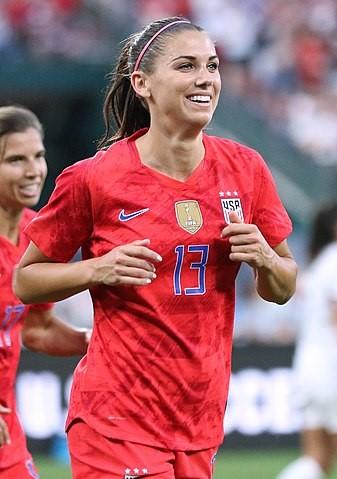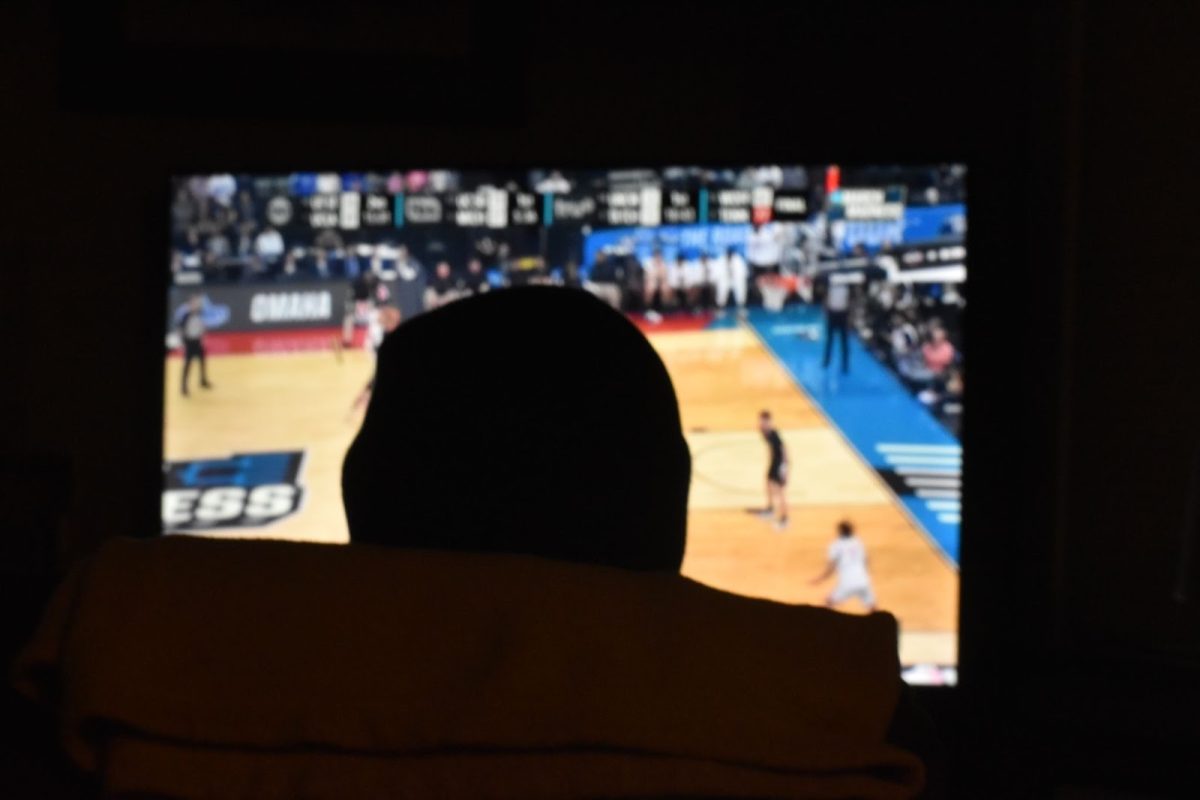
Baby Morgan Announced! Alex Morgan has established her place in history as a renowned US women’s soccer player and captain of the United States women’s soccer team. Morgan, who once played for Portland’s residential league team, the Portland Thorns Football Club, currently plays forward for Orlando Pride and the United States National Team (USWNT). Morgan is a part of the historical USWNT that fought for equal pay for the women’s team and is currently suing U.S. Soccer for gender discrimination. On October 23, 2019 Morgan announced her pregnancy with her husband Servando Carrasco. The couple’s baby girl is due to arrive in April 2020, and Alex Morgan recently announced she plans on playing in the 2020 Olympics following her pregnancy. Morgan’s expectancy of a daughter will do little to slow her or her Olympic dreams. “After having a healthy baby, I want to get back with the national team and look forward to playing in Tokyo,” Morgan told USA Today. Morgan follows the legacy of many other professional female athletes who have chosen to simultaneously nurture their children and their careers. Female Olympic athletes have made great strides in changing the narrative around athlete competitions and pregnancy, many even competing during or immediately after pregnancy. Beach volleyball Olympian Kerri Welsh Jennings was five weeks pregnant with her third child during the 2012 London Olympics. Welsh Jennings stated, “When I was throwing my body around fearlessly, and going for gold for our country, I was pregnant.” Despite the struggles of pregnancy, she never wavered from the challenge of being an Olympic beach volleyball gold medalist, saying “I gave everything I had.” Serena Williams, who has won more major singles titles (23) than any man or woman, dominated at the Grand Slam tournament where she not only won the title but also broke down the misconceptions surrounding women’s pregnancy and athletics. Her world famous win was magnified by her announcement of being two months pregnant with her first child. Upon returning from her complicated childbirth experience, Williams won a Grand Slam and was seeded No. 25 at Wimbledon. Franklin High School student Ellie Armbruster (11) voices her own opinions on athletic women and pregnancy, saying, “I think that if any female athlete chooses to get pregnant and wants to [carry and raise their child] then her sponsors should support her and help [the athlete] if they choose to return to the sport.” Armbruster acknowledges the potential downside of pursuing a career after [giving] birth. “It would be harder for them to come back from it and I think they should get the support.” Professional female athletes are tormented by the risk of losing endorsements and support if choosing to have a child. Welsh Jennings said, “Before we had our first child, I was told not to do it because they’re like, ‘You just won the Olympics, you’re going to lose all these endorsements, people are going to forget about you when you hold your baby,’” explaining how pregnancy holds back many athletes, not physically but socially. Oftentimes it is expected that these athletes will give up their athletic career if they choose motherhood because it is not plausible that a pregnant or post-delivery athlete can still maintain a highly successful and respectable career. Financially, many athletes are supported by sponsors and endorsements, primarily by larger companies. When a female athlete announces their pregnancy, they are also announcing it to their biggest financial support. Alysia Montaño, who ran in the USA Track and Field Championships once while eight months pregnant and again when five months pregnant, worked with Phoebe Wright and Kara Goucher to draw attention to Nike decreasing their sponsorship pay with mother athletes. Kimmy Fasani, who is an incredibly accomplished snowboarder, had a baby and faced losing sponsors. She told CNN, “There’s so much risk involved with our jobs that I think it’s just an automatic assumption that if you get pregnant, you’re not going to do what you do anymore.” No Olympic athlete is guaranteed a spot on the US team and intense training is needed to gain a spot—training that is seen as unfit for pregnant women, adding to the fear of careers ending.“Competitive athletes may be able to perform at higher rates during pregnancy and return to vigorous activity sooner after giving birth,” according to the American College of Obstetricians and Gynecologists said. Medical consultations are recommended to individuals for the specific restrictions on how long and the intensity of workouts that are safe for mothers and their babies. In regards to professional athletes, many take this medical advice and continue their training throughout most of their pregnancy and soon after childbirth. St. Mary’s Academy soccer player Audrey Chandler (11) said, “There is no reason for them to stop training and trying to achieve their goals.” Female professional athletes face many adversities, such as unequal pay; they should not be forced to choose between family and athletics for fear of losing positions or endorsements.
































